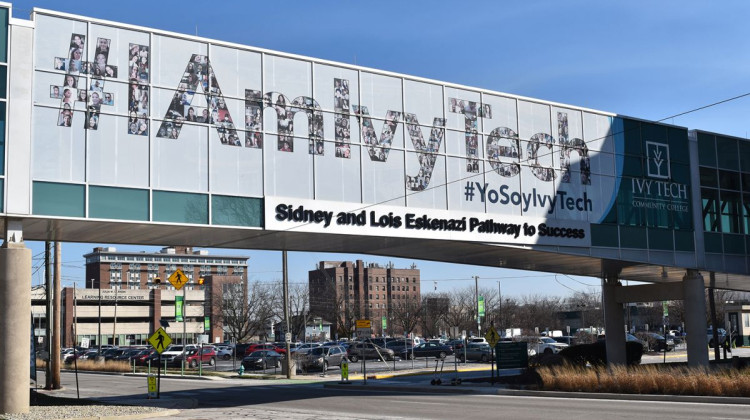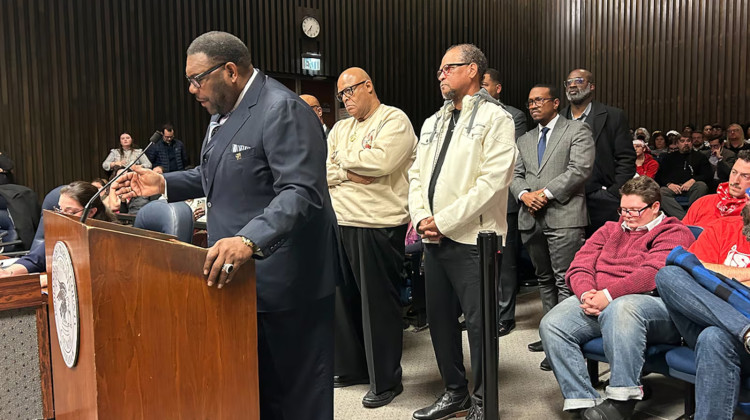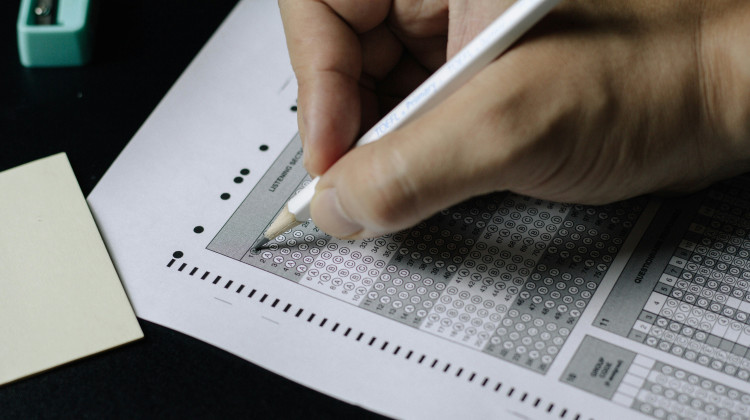
Head of Purdue's Department of Food Science Brian Farkas gives USAID Deputy Administrator Bonnie Glick a tour of the university's facilities including the Richard P. Vine Enology Library, home to hundreds of bottles of wine.
Samantha Horton/IPB NewsThe U.S. Agency for International Development (USAID) has tapped Purdue University to join its efforts in reducing foodborne illnesses and hunger in five developing countries.
The World Health Organization estimates that about 1 in 10 people become ill from consuming contaminated food every year.
The USAID awarded Purdue University $10 million to create the Feed the Future Innovation Lab for Food Safety with the potential to receive up to $20 million more in additional funding.
USAID Deputy Administrator Bonnie Glick says the organization has seen its efforts over the last nine years reduce poverty in developing countries. She says the organization's programs have not only benefited people in the countries being served, but also U.S. producers and companies.
"This new innovation lab will help open new markets for America’s agriculture and food industry all around the world,” says Glick.
No physical lab is being built, but rather a network of universities including Purdue and Cornell University that will collaborate and find solutions to implement in countries around the world.
Purdue food science associate professor Haley Oliver says this project will help leverage the food production industry in Indiana.
“We know how important corn and soy for example are to the world,” says Oliver. “We understand how important as protein consumption and demand goes up. We understand those systems and we can be a part of the solutions to these global challenges.”
The five countries for the initial focus are: Bangladesh, Kenya, Ethiopia, Senegal and Cambodia.
 DONATE
DONATE







 Support WFYI. We can't do it without you.
Support WFYI. We can't do it without you.